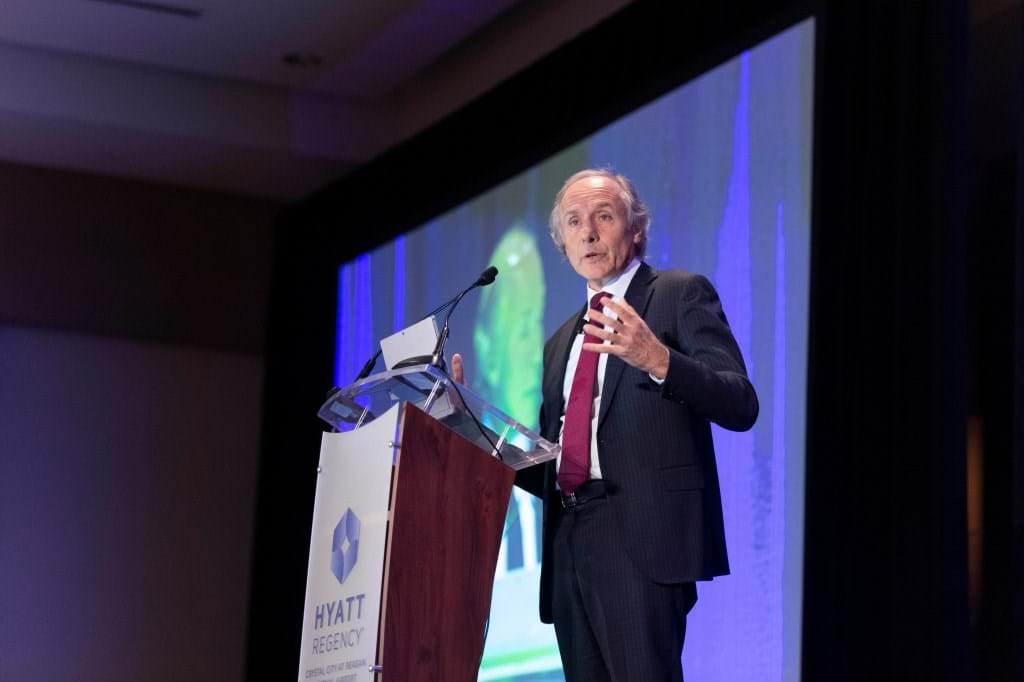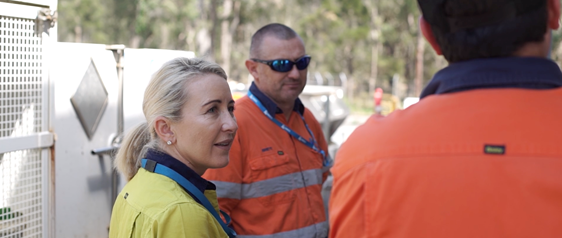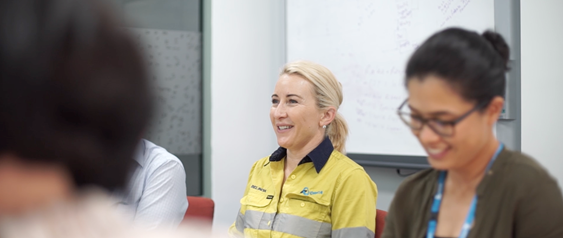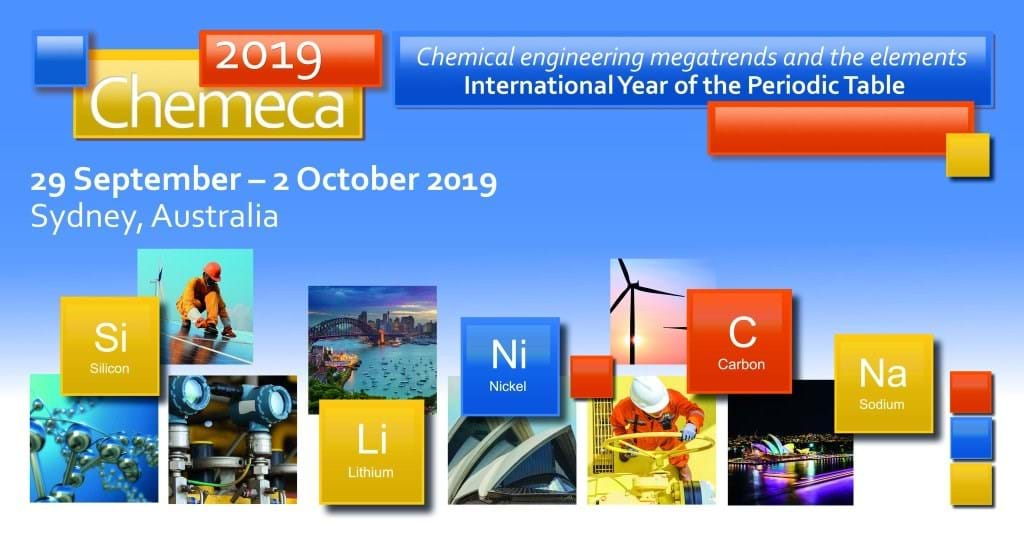How engineers are key to addressing societal challenges in Australia – Chemeca 2019

28th August 2019
Today we are faced with many challenges in society. For example, how to provide sustainable and affordable sources of energy; develop the latest advances in mining minerals and resources; enable access to clean water and food for all; provide efficient waste systems; and advance healthcare to help sustain an ageing population?
Chemical engineers across Australasia and the world are at the forefront of programmes to help solve these challenges and emerging megatrends in engineering to make processes efficient, sustainable and economical.
As the fourth industrial revolution progresses, we must question what will be the next chemical engineering paradigm? And, how will the significant challenges, megatrends and our roots as a discipline in manipulating and combining the fundamental chemical elements drive the development of the next chemical engineering paradigm?
These are key questions that chemical engineers will be discussing at this year’s Chemeca conference in Sydney in September. To mark 150 years of the periodic table, Chemeca 2019 will explore the emerging opportunities and challenges for the chemical engineering profession throughout Australia and New Zealand under the theme ‘Engineering Megatrends and the Periodic Table’.
Ahead of their plenary sessions at Chemeca, we caught up with Dr Alan Finkel, Australia’s Chief Scientist, and Belinda Grealy, Area Business Manager, Europe at Orica, both leaders in their respective fields of energy and mining. They gave an insight into their presentations, and how they feel Australian professional chemical engineers and leaders in the profession are key to positively effecting change for our current and future challenges.
Dr Alan Finkel, Australia’s Chief Scientist
As Australia’s Chief Scientist, Dr Alan Finkel’s role is varied. Ultimately, he provides high-level independent advice to the Prime Minister, the Minister for Science and other Ministers on matters relating to science, technology, research and innovation.

But he is also the Executive Officer of the National Science and Technology Council, which works to identify challenges and opportunities for Australia that can be addressed through science. Additionally, he advocates for Australian science via the Forum of Australian Chief Scientists.
“An important part of the role of Australia’s Chief Scientist is to be a champion of science, research and the role of evidence in the community and in government, and to communicate science and its intrinsic value to the Australian community,” he said.
“As a former president of the Australian Academy of Technology and Engineering (ATSE), my views on the central role that engineers play in solving major society issues are well known. As an engineer myself, I can assure you that applying the engineer’s way of optimisation will be vital to future planning to address all of the major issues affecting our society.”
In 2016, he was tasked with conducting a major review into Australia’s electricity sector. Subsequently, the Independent Review into the Future Security of the National Electricity Market (also known as the Finkel Report) was published. There were many findings, but a common theme was the need to modernise the national electricity market rules and operational procedures to accommodate the widespread technological changes across the industry. These include centralised variable renewable energy in solar and wind farms, distributed energy generation in solar rooftops, two-way power flow, demand management and digitalisation.

He said: “This revolution in technology is being driven by engineers. In a constructive sense, it is rather disruptive and therefore our engineers must rise to the challenge of helping to smooth the integration of these new technologies.”
In December 2018, the Council of Australian Governments Energy Council commissioned Finkel to lead a government taskforce in the development of a national hydrogen strategy. The taskforce will present its report in December 2019.
“The key issues we are considering are export markets, gas networks, transport, electricity system support and industrial applications,” he said. “In all of those sectors, we are considering standards, safety, environmental impacts, financing, community interests, governance, locations, and research and development. Engineers will play a key role in the development all of these activities, because engineers bring the necessary skills for planning, evaluation of process, and rigour. They do this through what I call “the engineering way”.
“It will also look at why hydrogen’s moment as a clean energy carrier has come, what opportunities its development presents for Australia, and some of the key issues that need to be addressed for its implementation as a global fuel source to become a reality. These include issues of safety, scale, diversity of supply and the path to commercialisation for Australia.
“The pressing need to decarbonise our economy means that industrial and emerging nations are looking again at options for alternate energy sources to existing fossil fuels. This provides an opportunity for Australia, which has the capacity, with the appropriate level of strategic planning, to export hydrogen to countries, such as Japan and Korea.
“And we are uniquely placed to make that hydrogen using solar and wind as the electricity supply for its production. I like to think of it as shipping sunshine.”

“Engineers are the unsung heroes of progress.” - Dr Alan Finkel
But why is it important for engineers to help solve major societal issues outlined in the Global Grand Challenges for Engineers?
He said: “Ask the average consumer what underpins technological progress in our society and they will mention computers and broadband. But the low weight, durability, cost effectiveness and superior performance of our smart phones, televisions, electric cars and building materials are the result of chemical, process and materials engineers working behind the scenes. They are the unsung heroes of progress.”
Belinda Grealy, Area Business Manager, Orica
Another leader in engineering, Belinda Grealy, Area Business Manager, Europe at Orica, will join Finkel at Chemeca.

She manages 200 employees who deliver the safe, efficient and profitable provision (AUD $240m revenue) of explosives products and blasting services to thousands of Orica Mining Services’ customers across Europe.
Grealy began her journey in chemical engineering in 1991 with a BHP Cadetship studying part time at the University of Newcastle, Australia, while working full time leading process improvements across different operations in steelmaking.
Over the subsequent 28 years she has continued to build upon her foundations of engineering in heavy industry and globally competitive businesses, gaining key skills in operations and commercial leadership roles within increasingly complex environments.
In this time, she has also become an inspirational role model for those considering STEM careers.
“Access to females in leadership was limited and the suggestion of building networks wasn’t a topic early in my career. I feel that it is invaluable to be accessible to share my learnings and I also feel a responsibility to accelerate others in a more diverse and inclusive culture.”
Orica is a principal sponsor of Science and Technology Education Leveraging Relevance (STELR), the flagship education initiative of ATSE to promote a national focus on STEM topics. The programme is currently in 20% of Australian secondary schools, engaging more than 75,000 students each year.
“For me helping industry to attract and retain the next generation of chemical engineers is important because the combination of science and engineering has broad application today and in the future,” she said.
“Data will become abundant and easier to obtain. However, a curious chemical engineering mind can unlock value that delivers sustainable practices not only in mining services but across the interfaces of our future challenges. Chemical engineering attracts individuals that can preference design, research and or leadership. All needs should be considered when developing learning pathways for individuals to thrive and specialise within a business as invaluable talent.”

“We are not attracting talent at the rate that we need for competitive and sustainable practices in core industries.” - Belinda Grealy
But it is how we ensure there is a continual flow of engineers supporting the next generation, that Grealy feels most strongly about.
She said: “The single biggest issue facing engineers in Australia is attracting and retaining talent into industries that we need today and, in the future.”
Grealy added: “Balancing the sometimes remoteness of operations, an ageing/virtual workforce and the rapid commercialisation of new ways of working with the resilience and perseverance to transform today’s practices into sustainable practices within the context of climate change, increasing population and conflict is complex.
“We are not attracting talent at the rate that we need for competitive and sustainable practices in core industries.”

Being a strong leader is one way to help contribute to society’s challenges. But what makes a good leader? Grealy gave her top three best qualities:
- the basics of a vision, mission and a plan to get there that’s shared broadly;
- open dialogue that challenges myself and others; and
- self-reflection and resilience.
Her presentation at Chemeca, Elements of Leadership, will focus on discovery. Since 2000, five elements have been added to the periodic table, which she said makes it seem “fluid and everchanging”. She will use this to discuss the question: what am I learning about the elements of leadership?

Chemeca will take place from 29 September to 2 October 2019 at the SMC Conference and Function Centre in Sydney. It will cover sustainability, environmental science and technology, process safety and hazard management, process systems and modelling, education, and industry best practice and innovation.
There is a fantastic line up of plenary and keynote speakers, presentations and workshops outlined the full technical programme. There will also be plenty of opportunities to network with other chemical engineering professionals and exhibitors.
For details on how to register visit Chemeca.